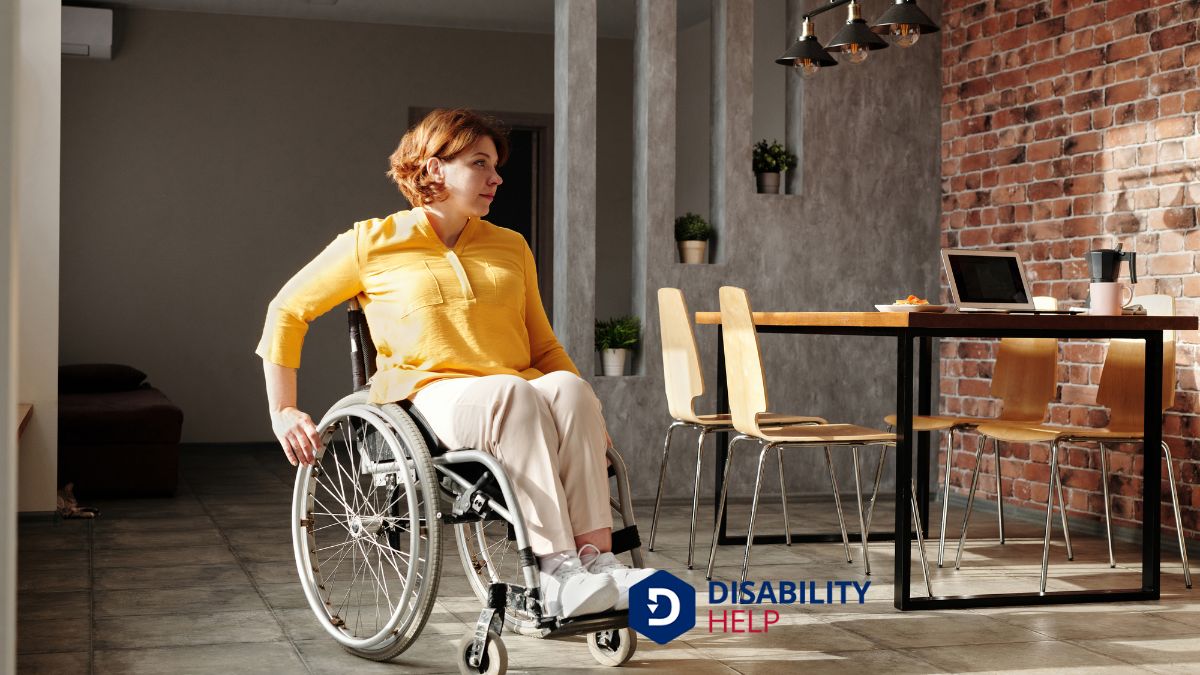As we prepare for long-distance trips, finding accessible travel resources can feel overwhelming. Let's explore airlines and train services that prioritize mobility-friendly features like wheelchair access and priority boarding. By tapping into online platforms, we can find accessible public transit options at our destinations. Engaging with travel communities and advocacyThe act of arguing in favor of, supporting, or defending the rights and interests of individuals or ... groups offers invaluable firsthand insights. Ready to discover more ways to guarantee smooth, accessible travel experiences?
Key Takeaways
- Explore travel agencies specializing in accessibilityThe design of products, devices, services, or environments to be usable by people with disabilities.... for customized itineraries and seamless travel experiences.
- Use apps and websites to find accessible transportation options like airlines, trains, and rental cars.
- Identify and verify accessible accommodationsModifications or adjustments in healthcare settings to support patients with disabilities. with direct contact to ensure suitable amenities.
- Engage with online travel communities for shared experiences and recommendations on accessibility.
- Leverage assistive technology and prepare a comprehensive checklist for accessibility needs and potential emergencies.
Researching Mobility-Friendly Transportation Options

When planning a long-distance trip, it's vital to start by researching mobility-friendly transportation options that cater to different accessibility needs.
We should begin by exploring airlines and train services offering assistance like priority boarding, wheelchair access, and accessible seating. It's important to contact providers directly to confirm their services meet our specific requirements.
We can also look into rental car companies with vehicles equipped for wheelchair users.
Apps and websites can help us locate accessible public transport options in different cities. Don't forget to check reviews from other travelers with similar needs; their experiences can guide us in making informed choices.
Let's stay proactive by preparing questions and verifying details in advance. This guarantees our journey is as smooth and stress-free as possible.
Identifying Accessible Accommodations
After sorting out transportation, let's focus on finding accessible accommodations that cater to our needs.
First, we should identify hotels or rentals with features like wheelchair access, roll-in showers, and grab barsBars installed in bathrooms or other areas to provide support and prevent falls for those with mobil... in bathrooms. It's crucial to call the establishments directly to verify these amenities, as websites mightn't always have the latest information. We should ask about the availability of elevators and ramps, and whether the rooms are spacious enough for maneuvering.
Additionally, let's consider proximity to public transportation and local attractions to minimize extra travel.
Reading reviews from other travelers with similar needs can provide insights into real experiences. By thoroughly researching and confirming accessibility, we can guarantee our trip is comfortable and enjoyable for everyone involved.
Utilizing Online Travel Communities and Forums
Let's explore how we can make the most of online travel communities and forums for our accessible adventures.
By engaging with fellow travel enthusiasts, we can share our own accessibility experiences and gain valuable insights.
These interactions often lead to discovering insider travel tips that enhance our journeys.
Engaging With Travel Enthusiasts
Connecting with fellow travel enthusiasts through online communities and forums can transform our long-distance trips from routine journeys into enriching experiences. By engaging with others who share our passion for travel, we can gain insights into destinations that might otherwise remain hidden.
These platforms allow us to ask questions, share tips, and receive advice tailored to our specific needs, especially when it comes to accessibility.
We can explore forums like TripAdvisor or Reddit, where vibrant discussions take place, offering firsthand accounts and recommendations. Joining specialized groups focused on accessible travel guarantees we connect with those who understand our unique perspectives.
Engaging with this network not only enriches our travel plans but also fosters a sense of community, reminding us that we're not alone in our adventures.
Sharing Accessibility Experiences
While exploring the world of accessible travel, we often find ourselves seeking real-life experiences that can guide our journeys. Online travel communities and forums become invaluable resources, offering insights and support.
We can connect with others who've faced similar challenges and learn from their stories. Here's how we can make the most of these platforms:
- Join Inclusive Groups: Participate in forums like TripAdvisor's Accessible Travel Forum or the Facebook group "Accessible Travel Club" for firsthand advice.
- Ask Specific Questions: Engage with community members by asking detailed questions about destinations you're planning to visit.
- Share Our Experiences: Contribute by posting reviews and tips about accessible venues and services.
Discovering Insider Travel Tips
How can we uncover those hidden gems and insider tips that make our travels truly unforgettable?
Let's immerse ourselves in online travel communities and forums. These platforms are treasure troves of firsthand experiences and advice from fellow travelers. By joining groups focused on accessible travel, we can connect with people who've been there and done that. They're enthusiastic to share tips on everything from accessible accommodations to local transportation options.
We should actively participate—ask questions, share our own insights, and engage with others. Websites like TripAdvisor and Reddit have dedicated sections where travelers discuss accessibility.
Exploring Accessibility-Focused Travel Agencies
For travelers who prioritize accessibility, seeking out travel agencies dedicated to accommodating diverse needs can transform a challenging journey into an enjoyable adventure.
These specialized agencies often have unique insights and resources to tailor our trips. Here's how they can help:
- Customized Itineraries: They design trips with our specific accessibility requirements in mind, ensuring all aspects of the journey are as seamless as possible.
- Expert Knowledge: These agencies are well-versed in accessible destinations and services, providing us with invaluable advice that mainstream agencies might overlook.
- Reliable Support: From booking accessible accommodations to arranging suitable transportation, they offer ongoing support, making travel less stressful and more fulfilling.
Leveraging Assistive Technology and Apps
As we commence our travels, assistive technology and apps play an essential role in enhancing accessibility and convenience. They empower us to navigate unfamiliar places with confidence and ease.
Apps like Be My Eyes connect us with volunteers for visual assistance, while Wheelmap helps us find wheelchair-accessible locations. Technology such as voice-activated assistants can simplify communication and help manage itineraries.
In addition, apps like Google Maps offer real-time public transport updates, including details on accessible routes.
Don't forget to explore specialized apps like Aira, which provides on-demand visual guidance from trained agents.
Understanding Travel Insurance for Accessibility Needs
When planning our trips, understanding travel insurance tailored to accessibility needs is crucial to guaranteeing a stress-free journey.
We need to be aware of what coverage options exist and how they can support us if unexpected situations arise. Here's what to look for:
- Medical Equipment Coverage: Guarantees that our essential devices, such as wheelchairs or hearing aids, are protected against loss, damage, or theft.
- Emergency Medical Assistance: Provides coverage for medical emergencies that can occur while we're away from home, offering peace of mind that help is available.
- Trip Cancellation for Accessibility Reasons: Covers costs if we need to cancel due to unexpected issues related to our accessibility needs, guaranteeing we don't lose our investment.
Accessing Government and Non-Profit Resources
Though planning a long-distance trip can be challenging, tapping into government and non-profit resources can make it more manageable and accessible.
We can start by exploring government websites, which often offer valuable information on accessibility standards and services. For instance, agencies like the National Park Service provide detailed guides on accessible trails and facilities.
Additionally, non-profits dedicated to travel accessibility can be a goldmine of information. Organizations such as Mobility International USA offer resources and advice tailored to our unique needs.
Connecting with these entities can provide us with insights into accessible destinations and accommodations.
Let's also reach out to local disability advocacyEfforts and services aimed at protecting and promoting the rights and interests of individuals with ... groups, as they often have firsthand knowledge about accessible travel options and can offer support in planning our journey.
Preparing an Accessibility Checklist for Your Trip

Creating an accessibility checklist is a fundamental step in guaranteeing our long-distance trip goes smoothly.
It helps us anticipate potential challenges and guarantees we're prepared. Here's how we can create an all-encompassing checklist:
1. Research Accommodations and Transportation: Verify if hotels and transport options meet our accessibility needs.
Are there ramps, elevators, or accessible restrooms?
2. Pack Essential Accessibility Gear****: Include mobility aidsDevices designed to help individuals move around more easily, such as canes, walkers, or wheelchairs..., charging equipment for devices, and any necessary medical supplies.
We don't want to be caught without something critical.
3. Emergency Contact Information: List local emergency numbers and contacts who understand our needs.
It's reassuring to know help is just a call away.
Conclusion
In our journey to make long-distance travel more accessible, let's remember that preparation is key. We should utilize online resources, connect with supportive communities, and explore specialized travel agencies. By leveraging assistive technology and understanding our travel insurance options, we can address our accessibility needs. Don't forget to consult government and non-profit resources. Together, we can create a thorough accessibility checklist to guarantee a smooth, enjoyable trip. Let's commence our travels with confidence and ease.






